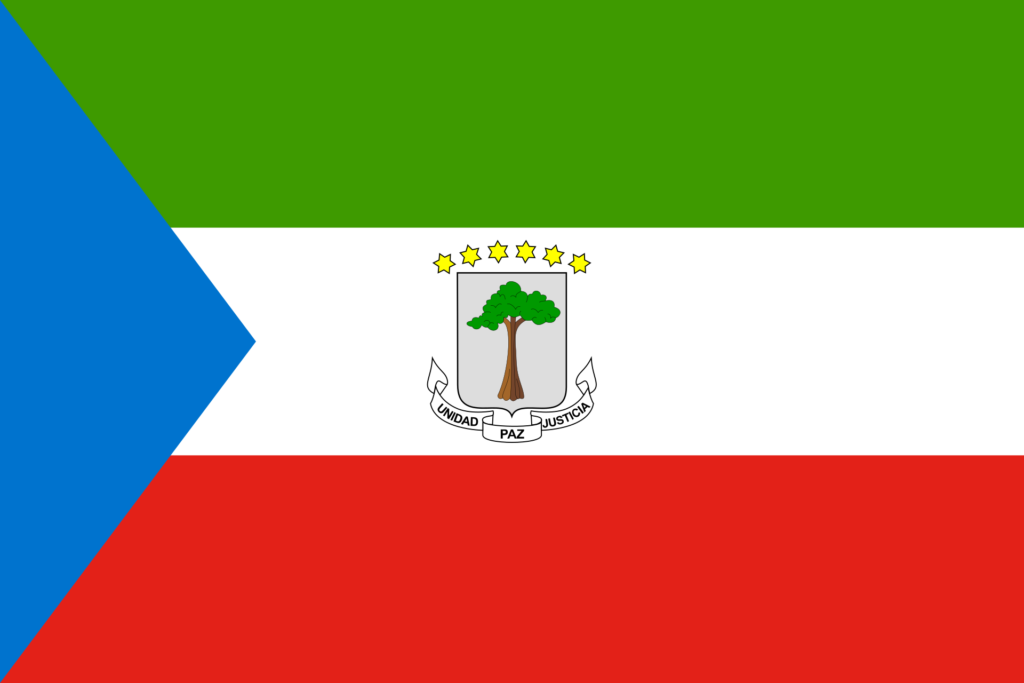NATIONAL DAY OF THE REPUBLIC OF EQUATORIAL GUINEA

CAFRAD – The Pan-African Intergovernmental Organization joins the Republic of Equatorial Guinea in celebrating the 57th anniversary of its independence.
Each year, on October 12, the Republic of Equatorial Guinea commemorates its Independence Day (Día de la Independencia Nacional), achieved in 1968. This country, composed of the island of Fernando Poo (today Bioko) and the continental territory of Río Muni (Mbini), had been a Spanish colony for over a century. However, inspired by the wave of African independence movements of the 1960s, it gradually freed itself from colonial rule—first obtaining internal autonomy in 1963, and later confirming independence through the referendum of August 11, 1968, where 63% of the population voted in favor of independence, which officially took effect two months later.
That same year, the people elected their first president, His Excellency Mr. Francisco Macías NGUEMA, the candidate of a coalition of several parties, who governed the country for nearly eleven consecutive years.
During each Independence Day celebration, the current President of the Republic, H.E. Mr. Teodoro OBIANG NGUEMA MBASOGO, never fails to pay tribute to the founding fathers of the nation for their victorious anti-colonial struggles. The National Day is the most significant event in Equatorial Guinea, marked by celebrations held in a different city each year. The entire nation contributes to organizing the festivities, which include a military and popular parade, along with numerous cultural and social activities.
The Republic of Equatorial Guinea consists of both island and mainland territories. These two regions are subdivided into seven provinces and eighteen districts, covering a total area of 28,050 km² and a population of 1,938,431 inhabitants, with an annual growth rate of 2.37% (according to Worldometer, June 2025). This significant demographic growth results, among other factors, from an increase in life expectancy, a fertility rate of 4.3 children per woman (2021), and rising immigration since the 1990s.
One of the main factors attracting foreigners—particularly from Europe, Asia, and other African countries—is the country’s economic prosperity driven by oil exploitation. Often referred to as an “Eldorado”, Equatorial Guinea has developed an attractive remuneration system and other benefits that continue to draw numerous investors and foreign workers.
Nevertheless, aware of the risks of overreliance on oil and its gradual depletion, the Government has made efforts to strengthen fiscal discipline, improve transparency, and ensure the honest publication of accounts, while investing oil revenues in high-quality physical infrastructure and the improvement of living conditions for its population.
In pursuit of sustainable and diversified economic development, the Government has undertaken ambitious reforms. In this context, CAFRAD – the Pan-African Intergovernmental Organization – has been called upon several times to conduct capacity-building programs for senior officials of Equatorial Guinea’s institutions. These training sessions, covering a wide range of topics, have been organized both at CAFRAD headquarters and on-site in Malabo (Equatorial Guinea).
Today, once again, CAFRAD, as a center dedicated to cultivating organizational culture and advancing African management development, proudly stands alongside Equatorial Guinea—the only African country where Spanish is the official language—to support the efforts of its leaders and managers in building viable, comprehensive, and inclusive strategies for sustainable economic transformation.
CAFRAD, the Pan-African Intergovernmental Organization, congratulates the Republic of Equatorial Guinea on its 57th anniversary of independence and reiterates its commitment to contributing to the development of the distinctive competencies of the nation’s decision-makers. CAFRAD expresses its best wishes that this year be marked by tangible progress and meaningful advances for the well-being of the people of the Republic of Equatorial Guinea.




